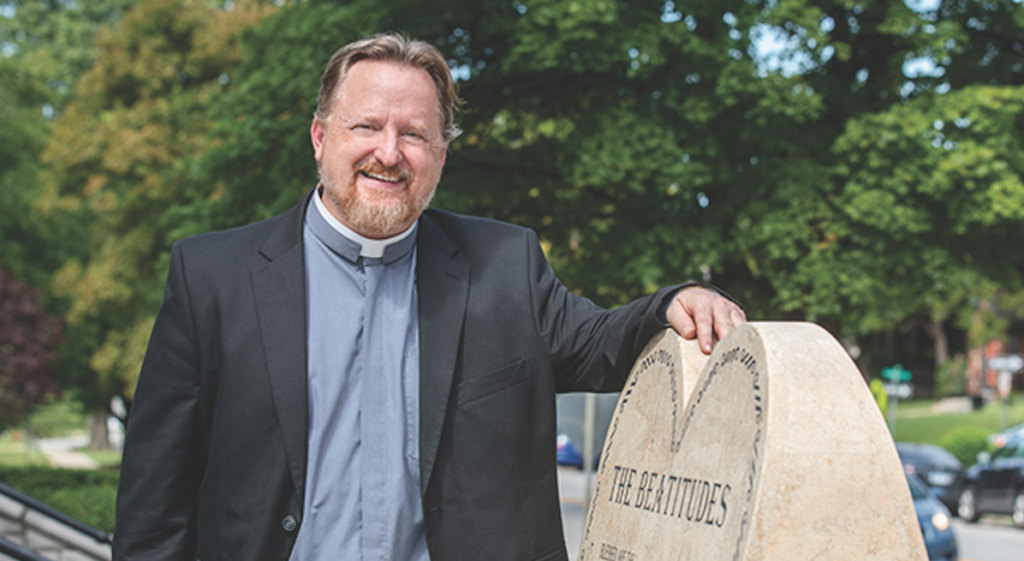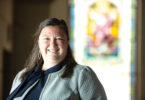
by Deacon Bill Scholl
Each Lent, we begin with a reminder of Satan’s works by recalling the temptations of Christ in the desert.
Recently here in Kansas, we received another reminder of this ruiner of souls when a group of misguided Kansans who claim to be Satanists got a permit to perform at our Capitol. They announced they would perform quasi-ritual acts to insult Jesus and all those who follow Christ.
While it has been heartening to see how Christians have responded to this outrage in a peaceful way, it is troubling that some Kansans have been tempted to defend such hateful speech as a necessary safeguard to the First Amendment right of free speech.
In claiming Satanists have a right to expression just like any other religion, they treat the means to sacred as a sacred end in itself and, in doing so, endanger the liberty they profess to save.
Put simply, we have rights because we have responsibilities, and so our right to free expression is understood in terms of our responsibility to be good to each other.
For instance, each of us has the right to criticize, because we each have a responsibility to care for the common good. However, this right to free speech is not absolute, because it is not the final purpose of its exercise.
Consequently, all legitimate free expressions must be, at least implicitly, motivated by good will. So, while Catholic teaching considers the freedom of speech to be a necessary and fundamental human right to share our honest thoughts and opinions, it must not jeopardize the common good or public morality. (See “Communio et Progressio,” a 1971 pastoral instruction of the Second Vatican Council.)
In expressing ourselves we must consider the rights and dignity of others. While it is often difficult to discern where to draw the line, it does not follow there is no line, and Satanism, evil for evil’s sake, by definition crosses that line.
Indeed, to say there should be no line actually aborts the free speech right because it severs speech from its responsibility to serve the good. There can be no greater severance from such service than welcoming Lucifer, who promotes “non serviam,” to goodness itself, God. Even if such sacrilege is done ironically because of personal disbelief in God, it’s like joking about bombs at the airport. We don’t allow it because it shuts everything down.
It is no coincidence that the innovator of our modern understanding of how Catholics practice the virtue of social justice — that is, the individual serving the common good — and the St. Michael prayer are one and the same.
Pope Leo XIII understood, through the guidance of the Holy Spirit, that nothing is more ruinous to the society than listening to Satan.






